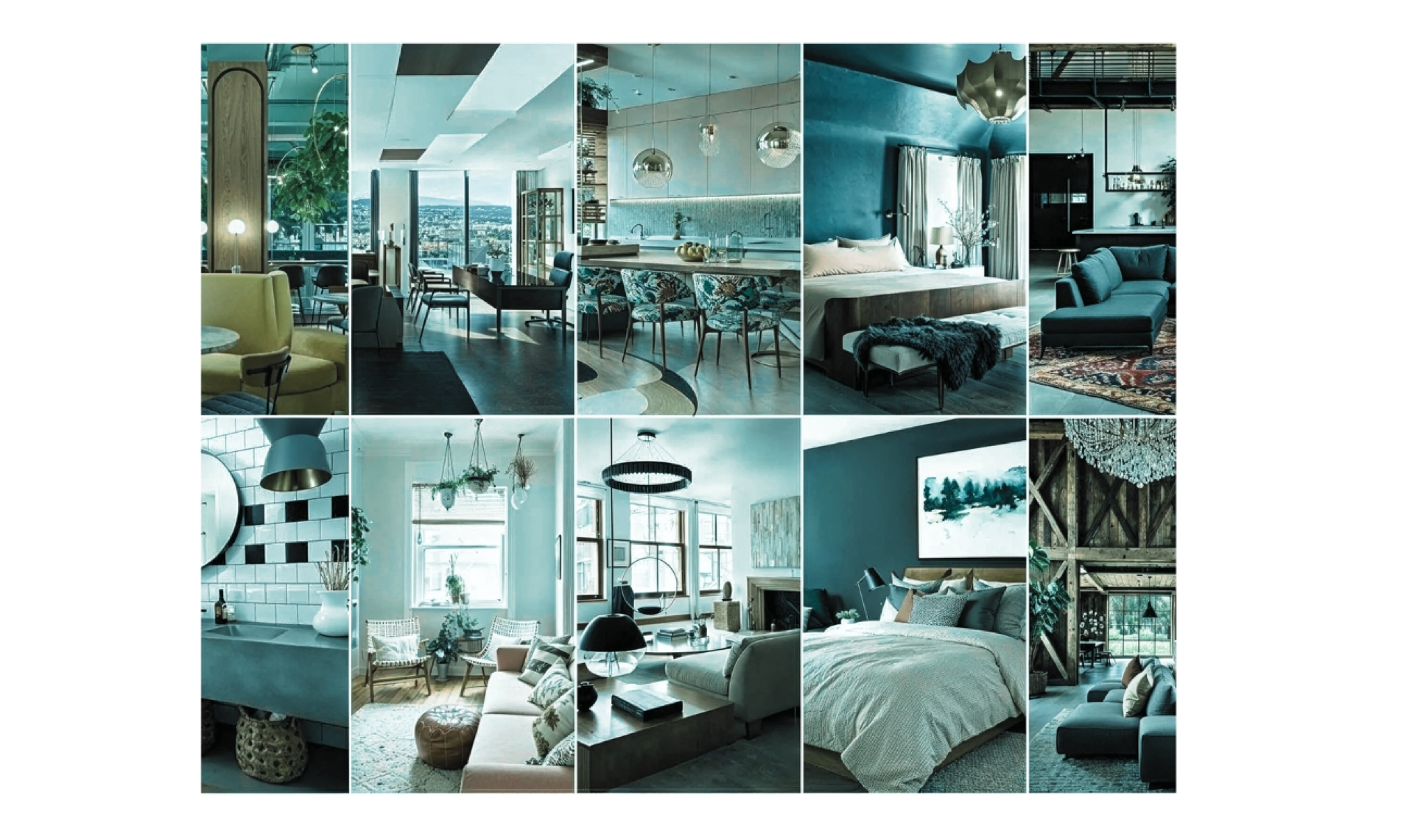






"THE FUTURE OF DESIGN STRATEGY: Your guide to the deep brief

I believe that design is not just about appearance but about creating a deeper connection with our surroundings. That's why I am re-Imagining the future of design through recreating the concept of design thinking . As I aim to transform homes into expressions of self, where every element is in harmony with our deepest needs. It's more than design; it's about enriching lives by ensuring that personal spaces truly cater those who inhabit them.




Introduction




MY methodology combines traditional insights with advanced analytics, revealing not just preferences but the core psychological needs related to personal spaces. Armed with these insights, I AM crafting a future where every home is a reflection of its inhabitants' deepest desires—a commitment to transforming living spaces into sanctuaries of personal expression and well-being.
In my pursuit to redefine living spaces, I begin with a deep exploration into the hearts and minds of those I design for. Through extensive research, diverse engagements, and a comprehensive analysis of competitor strategies and psychological space design, I uncover the intimate relationship between individuals and their environments.
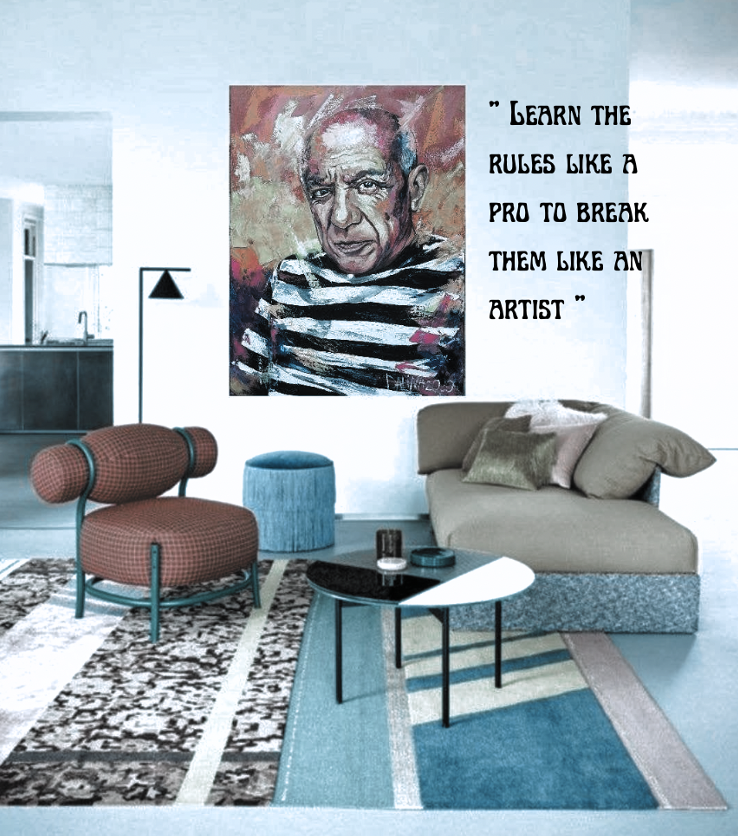




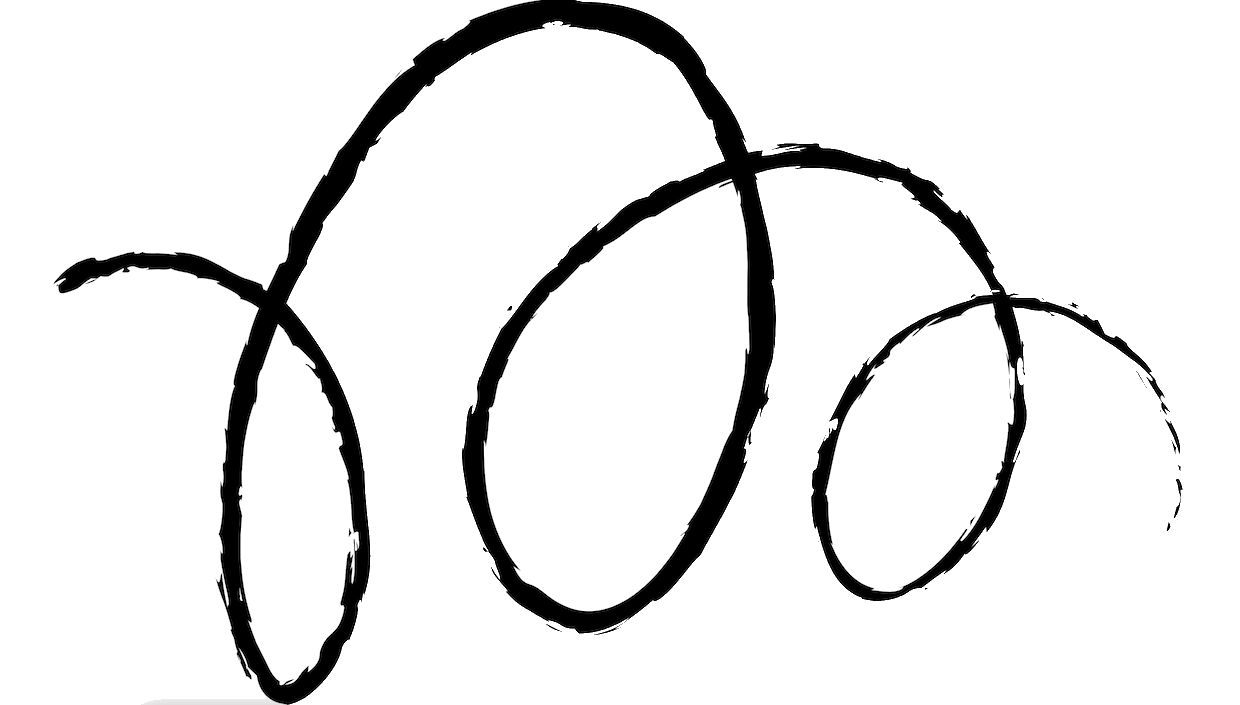
What is the problem?
Despite their functionality, homes often fail to deeply connect with our own personal needs. Traditional interior design focuses on aesthetics and trends rather than the unique identities and emotional needs of the individuals who live within these spaces.












Opportunity
My research started with a holistic examination of the future of home environments, identifying the potential for profound personalization within interior design. Therefore, the groundwork started from looking into existing research and insightful observations within various living spaces, which led me to the fundamental question: "How can I redefine interior design to forge a deeper connection between individuals and their homes?"









MARKET COMMUNICATION GAP
Opportunity #1







Evolving consumer priorities and external influences challenge traditional marketing. Surface-level customization and reliance on focus groups hinder genuine dialogue. Companies must adopt authentic strategies acknowledging dynamic consumer needs and empower individual action."









Personalisation is about creating environments that are not merely inhabited but deeply connected to those who live within them, embodying their stories and dreams in every texture, shape, and hue.

PERSONALISATION
Opportunity #2


WELL BEING








Opportunity #3
Designing living spaces to prioritize wellbeing is crucial, recognizing that wellbeing differs for each individual. They should nurture mind, body, and spirit, promoting tranquility and rejuvenation while reflecting inhabitants' unique stories and dreams.


TRENDS







Opportunity #4
The landscape of trends in interior design is ever-evolving, yet my focus remains steadfast on timeless principles that honor innovation, sustainability, and inclusivity. I are poised to lead with designs that anticipate the future, embracing changes that reflect my collective aspirations and challenges, ensuring that my creations remain relevant, responsive, and resonant in the years to come.
BECAUSE“THE BEST WAY TO PREDICT THE FUTURE IS TO CREATE IT”










DESIGN MIX PRINCIPLES
Opportunity #5
Central to my design philosophy is the seamless integration of diverse principles—blending tradition with innovation, functionality with aesthetics, and individuality with universality. This fusion creates a dialogue between contrasts, a dynamic interplay that enriches our living spaces, making them more adaptable, intuitive, and reflective of the human experience.










CYCLICALITY
Opportunity #6
Personality is the pattern of thoughts, feelings and behaviors unique to a person. People tend to think of personality as fixed. But according to psychologists that is not how it works, “ Personality is a developmental” So where we want to be today could be were we are right now tomorrow!!












According to “ the atomic habits book” life will be easier if you find ways to reduce friction, rather than trying to solve it. In order to build better habits, we need to find ways to reduce friction associated with our good habits and increase friction associated with our bad habits.

The Atomic Habits
CREATING A HABIT REQUIRES YOU TO REDESIGN THE SPACE AROUND YOU
AVERT BAD HABIDS BY MAKING THEM INVISIBLE
MAKE IT EASIER TO SEE THE CUES FOR THE DESIRED HABITS
1
2
3



Opportunity #7

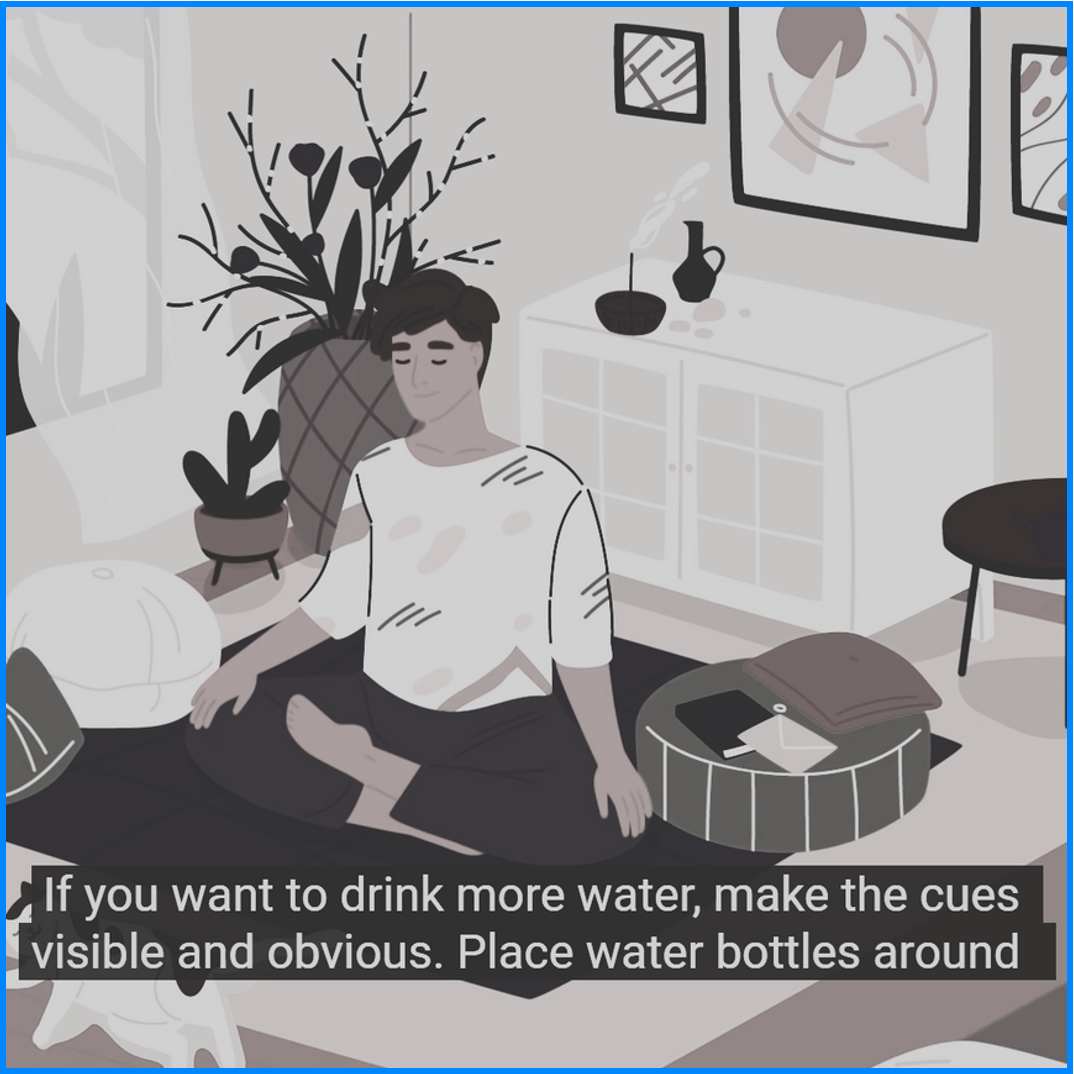
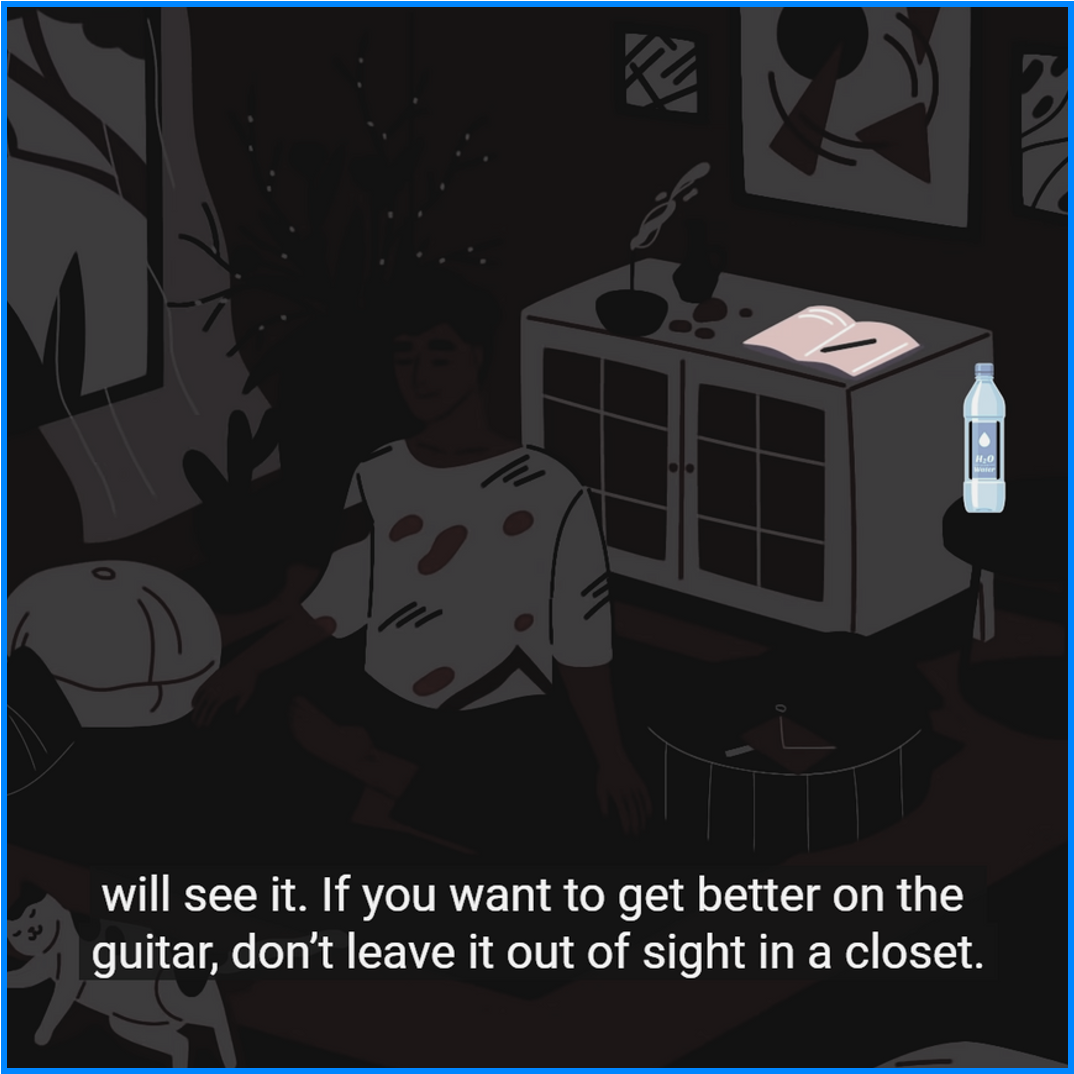
Designing with purpose






Creating personalised spaces






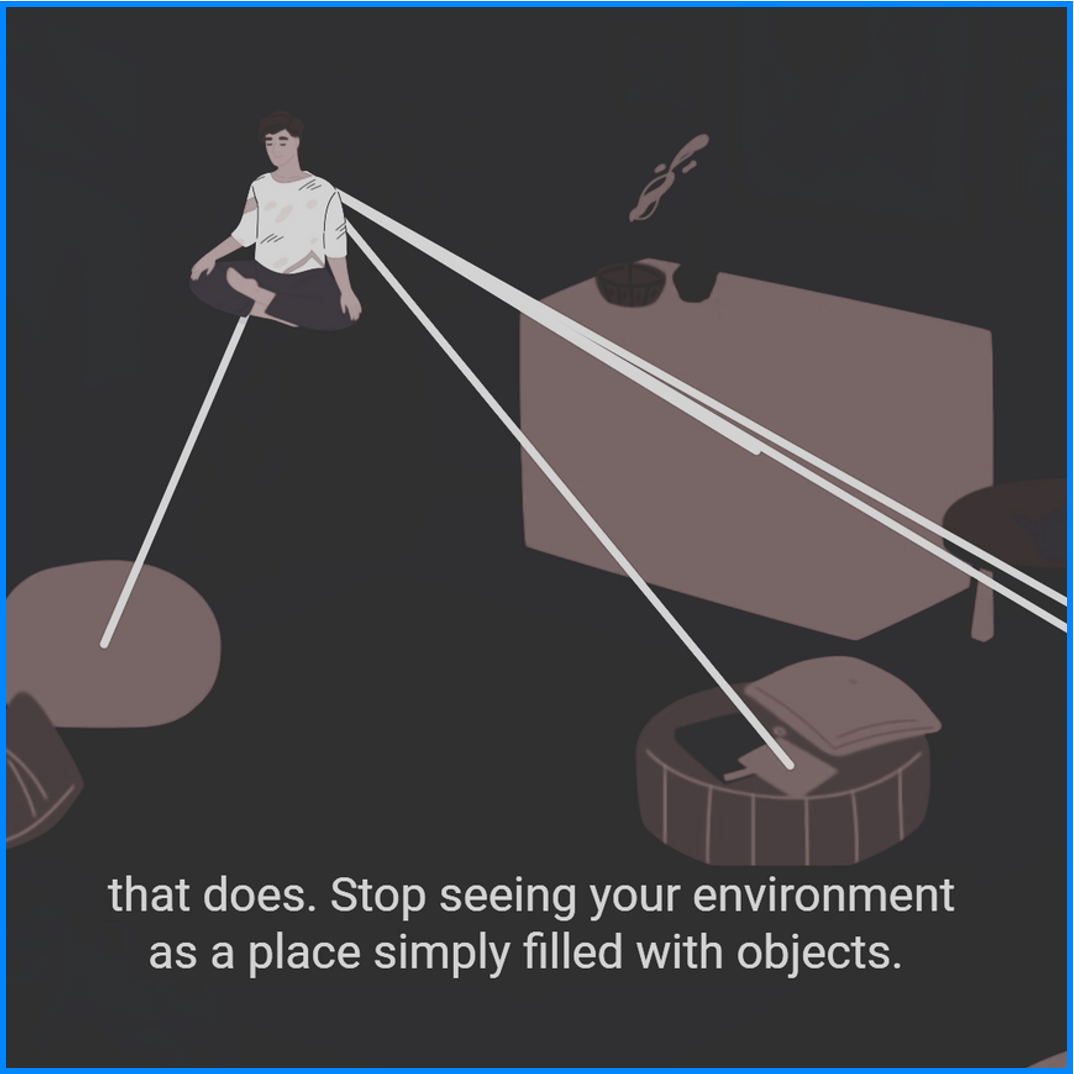
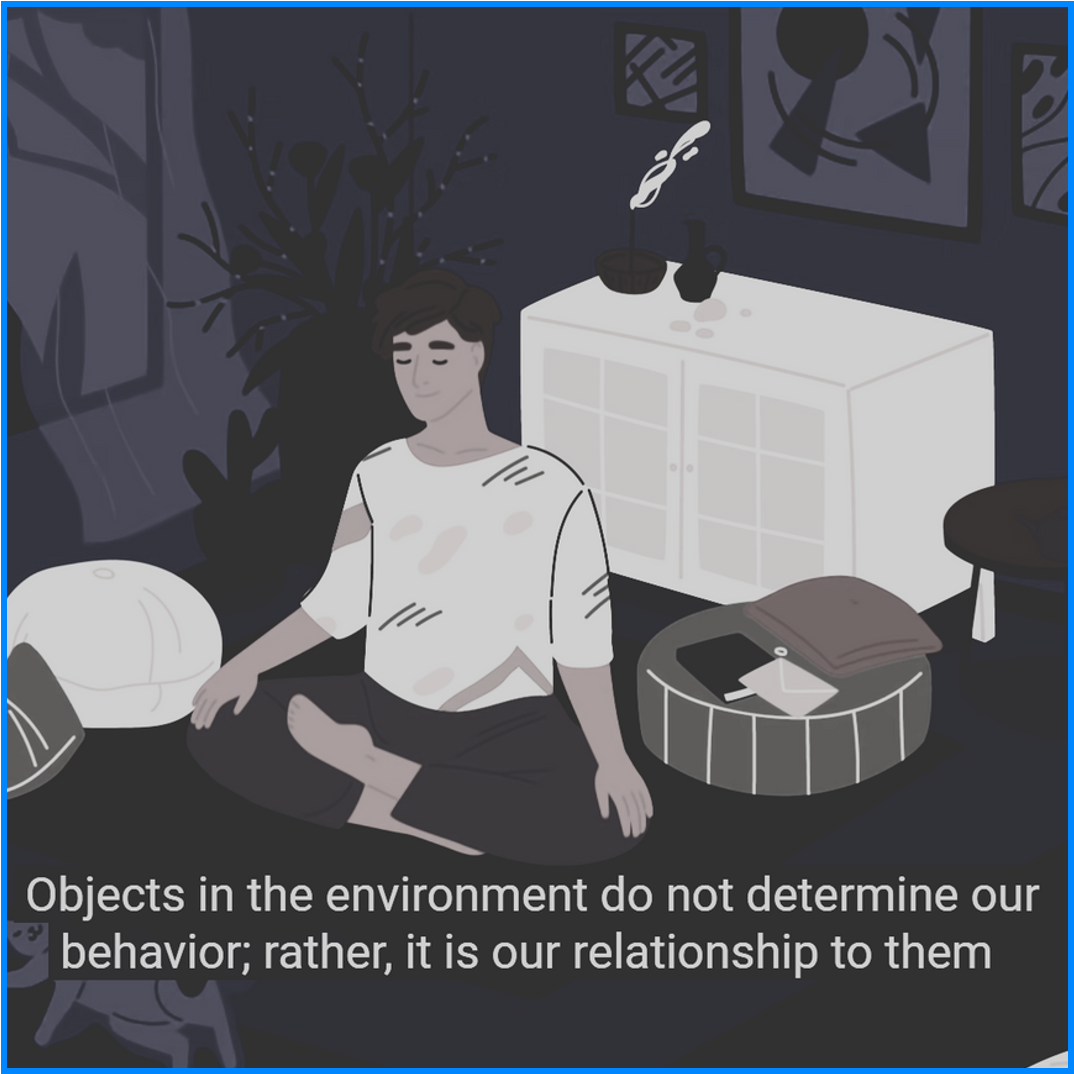
In order to redesign the future, we need to answer the following questions:
What strategies can designers employ to influence their clients’ activities within a space, ultimately enhancing their quality of life and beyond?
How can we go beyond customization to personalize a space effectively?
In what ways can personality questions be integrated with standard interior design inquiries in a creative brief?




2
4
1
3
What methods can be used to analyze a design brief critically for actionable insights?














Vision into the future
"The Future of Design," introduces a transformative approach to home environments. By integrating advanced psychological insights with innovative design methodologies, we can enable individuals to re-design their living spaces.





Not only every aspect of a home to reflect the personal needs and desires of its inhabitants, but also enriches their daily lives by fostering a profound connection between their inner selves and their physical surroundings.
redefining the essence of home, making each environment a true sanctuary of self-expression and personal harmony.
1
2





DESIGN PROCESS
Step-by-step







My research began by examining the future of home environments, aiming to unlock the potential for deep personalization in interior design. I delved into existing research and observed various living spaces, leading me to ask: "How can I redefine interior design to foster a stronger bond between individuals and their homes?

HUMAN CENTER APPROACH
"The Future of Design," introduces a transformative approach to home environments. By integrating advanced psychological insights with innovative design methodologies, we can enable individuals to re-design their living spaces.








EXPERT INTERVIEW SUMMARY
It was a deep dive for supporting my assumptions, and deeper dive to gain an insight on where to start with the methodology !!!



TO EXPLORE THE YOUNGER GENERATION DEFINITION OF PERSONALISATION VERSUS CUSTOMISATION








Reason #1
Reason #2
TO IDENTIFY ANY REASONS FOR DESPISING THE CURRENT MARKET STRATEGIES
Reason #3
TO LEARN ABOUT THEIR VIEW OF TRENDS AND WHAT ROLE IT PLAY IN THEIR LIVES
Reason #4
TO FIND VOLUNTEERS FOR MY DESIGN BRIEF INTERVIEW.
How often do you go to Pinterest for inspiration?
Have you ever felt a sense of connection to a space?
If yes, please state why
57.6%
Yes
9.1%
Maybe
33.3%
No
62%
Very often
13%
Never
25%
Not very often
Reasons for sending
QUESTIONNAIRES






Client Interviews
HERE I GIVE THE PARTICIPANTS[CLIENTS] A SET OF QUESTIONS, INDIVIDUALLY ABOUT THEIR LIFESTYLE, WELLBEING, AND TASTE IN INTERIOR DESIGN.
QUESTIONS PRESENTED AS A PERSONALITY TEST QUESTIONS INSPIRED BY THE MYER BRIGGS THEORY BUT PROCESSED AND ANALYSED LIKE RELATIONAL PSYCHOLOGY QUESTIONS.
User Persona
Gender: Male
Age group: 25
Occupation: Student Marketing
Location: London, UK
Behavioural
• struggles with maintaining a fixed sleeping schedules, which affects his daily life routine
• Struggles to lead an active lifestyle
• Disorganized and hard to concentrate
• Collects Knick knacks
• Prioritizes comfort
• Spends most of the day at home
• Procrastinates
Psychographic
• Lives in the past
• Love faint lights
• scatter-brained
• Stressed
• Minimalist, loves comfort
• Family comes first
• Sees the world with his eyes
• Procrastinates, and tries to stay in their comfort zone






Empathy Maps


What does he say?
"I lean towards being minimalist but at the same time my choices reflect a maximalist's lifestyle so I think I could be a 7"
"I am claustrophobic"







What does he do?
"The animal I relate to most is a SLOTH; It doesn't do
much throughout the day"
BEDTIME ROUTINE: "I try and fail not to use my phone... I try not to think.
I like to believe I am a morning person, I like to feel that the sun is out, however, I work at night
If I were to be stranded on a deserted island, I would need the following 6 items, A filtration system, blade, thermal cloth, flare, book
What does he think and feel?
"I think I am thoughtful and scatter- brained, do not know how to concentrate, and feel all over the place and I think I am a bit irritable as well,"
What does he see?
My eye sight, If you really want to see beauty in the world, you see it through the eyes"
"I like blue, and I find myself to have affinity towards evil eye."
Pain
Lack insight into their own needs, preferences, or behaviors, which can pose challenges in effectively meeting their expectations or guiding their decision-making processes
"While if you're really a minimalist, and you live in a maximalist environment, that will clash with you on an almost subconscious level. Even feel claustrophobic "
Gain
Strategically position main attractions as primary focal points, supported by complementary secondary points, guiding clients' attention and actions through the space for life, influencing behavior and outcomes effectively.
Interview questions
Can you describe your dream house?
How would you describe your own home? Description-likes-dislikes
If you were stranded on a deserted island alone, what six items would you need?




2
4
1
3
Can you describe your dream house?









On a scale from 1 to 10 [1 is minimalist10 is maximalist], how would you describe yourself?


5
6
What methods can be used to analyze a design brief critically for actionable insights?
Explored dynamics of minimalist in a maximalist space, revealing insights on claustrophobia, depression, and procrastination.
Crafted tailored solutions to harmonize with participant's preferences and well-being needs.
Designed contrasting zones to guide participant towards focal point, symbolizing past and future aspirations.


Design Philosophy




My design philosophy evolved through iterative processes, aiming for visually appealing and functional solutions while capturing personal expression and well-being.
CREATIVE DESIGN BRIEF CRITICAL ANALYSIS PROCESS
Explored client's traits, weaving pivotal characteristics into design narrative with sketches prioritizing focal point and secondary zones.



Customer Journey




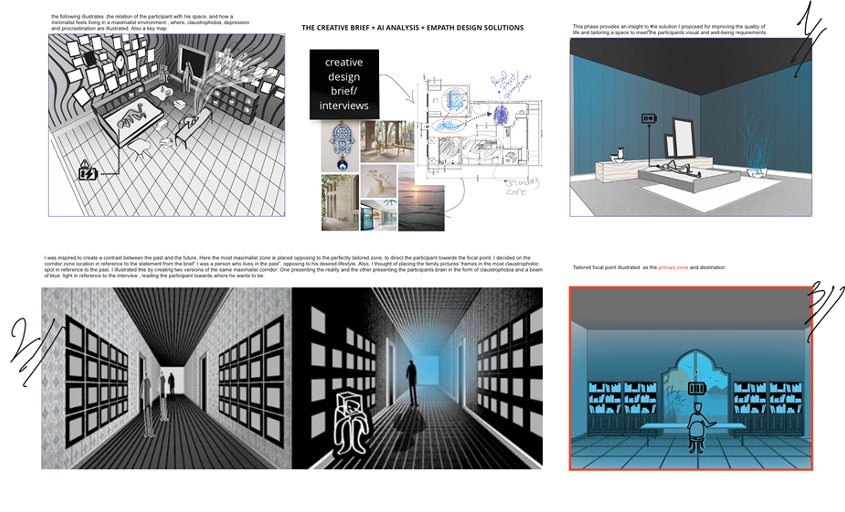
- 1. Multi-Dimensional Engagement: Design must go beyond traditional approaches, engaging senses to create immersive environments reflecting inhabitants' nuanced preferences.
- 2. Embracing Everyone's Story: Designs should delve into personal narratives, echoing daily rituals for a sense of belonging and identity.
- 3. Complementary Homes: Enhance rather than replace home essence, weaving personalized psychology into design for deeper interaction.
- 4. Intuitive Interaction: Each design element communicates purpose, enriching living experience with beauty and intuition.
- 5. Harmonic Living Spaces: Enhance personal well-being while maintaining household harmony.
- 6. Fostering Connection and Creativity: Homes serve as canvases for creativity, empathy, and personal storytelling, empowering individuals to shape their environments.
Requirements










Future Integration: AI-Enhanced Design Analysis
In the future, we are aiming to integrate AI into the methodology for analysing design briefs, delivering concise findings and actionable insights.
By harnessing AI algorithms, we can efficiently process data, identify patterns, and extract key information. This will enable us to make informed design decisions swiftly and effectively, enhancing the overall quality and relevance of the strategy!



















Engagement: The challenge lies not just in drawing clients into the design process, but in encouraging a depth of engagement that reveals the essence of their needs and aspirations.
Decision-Making: Design decisions, while aimed at innovation, must be approached with caution to avoid unintended consequences that could resonate far beyond initial user testing.
Unified Vision: Crafting a singular creative brief that resonates across diverse client aspirations demands a delicate balance of universality and bespoke attention.
Market Dynamics: The fluidity of market interests—shaped by social, environmental, and cultural currents—demands a design philosophy that is both responsive and resilient.
5
6
8
7
LIMITATIONS AND CONSTRAINTS
Creative Depth: The essence of design lies in marrying creativity with empathy; our endeavor is hindered when either is in short supply.
Insight Recognition: The crux of addressing a creative brief’s challenges lies in our ability to discern and articulate its underlying complexities
Resource Allocation: The intricacies of user testing—budget, planning, and timing—are fundamental yet challenging pillars of our project’s framework.
Empirical Validation: While AI offers theoretical solutions, their true merit awaits validation through rigorous testing and real-world application.
1
2
4
3
